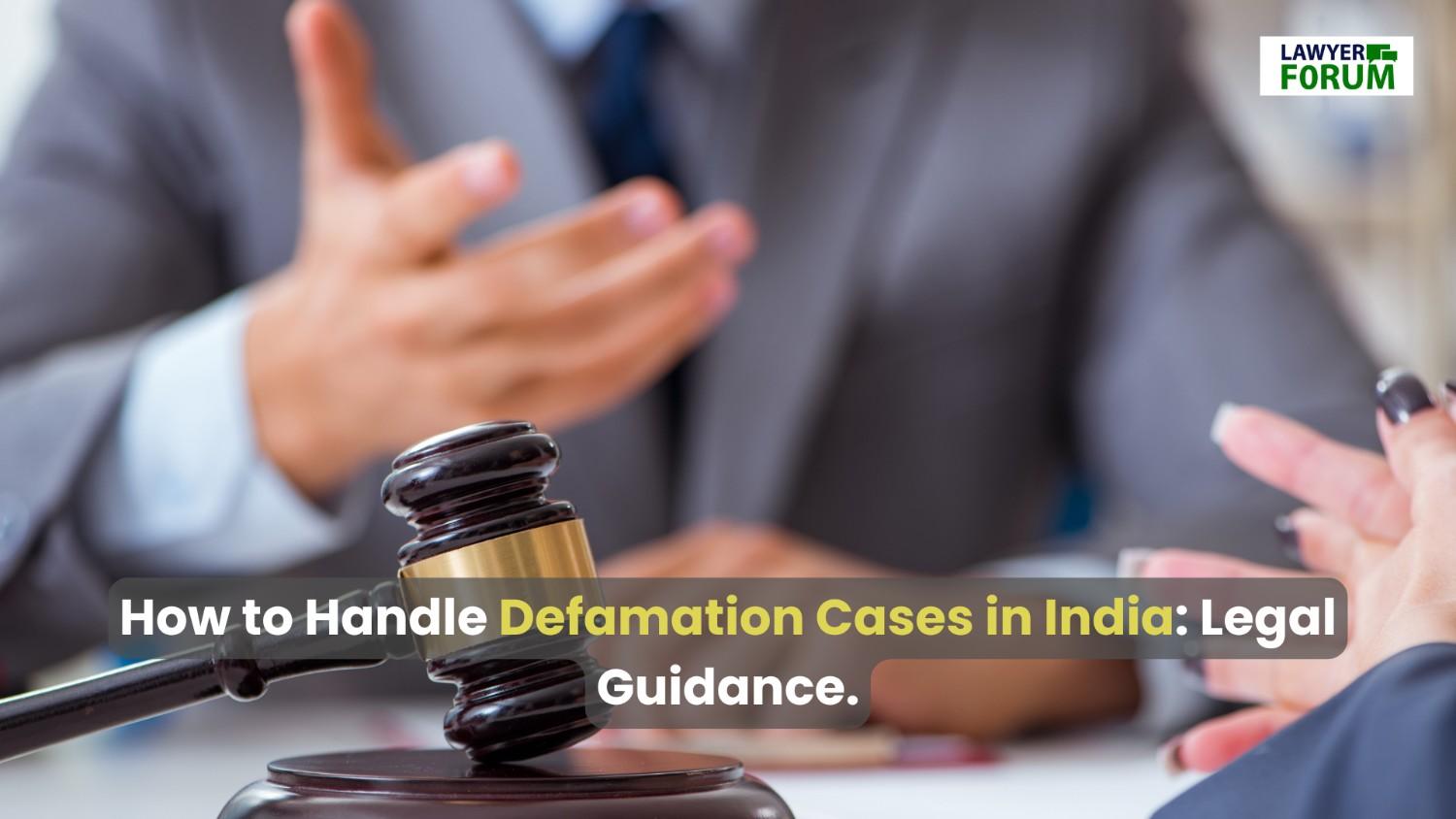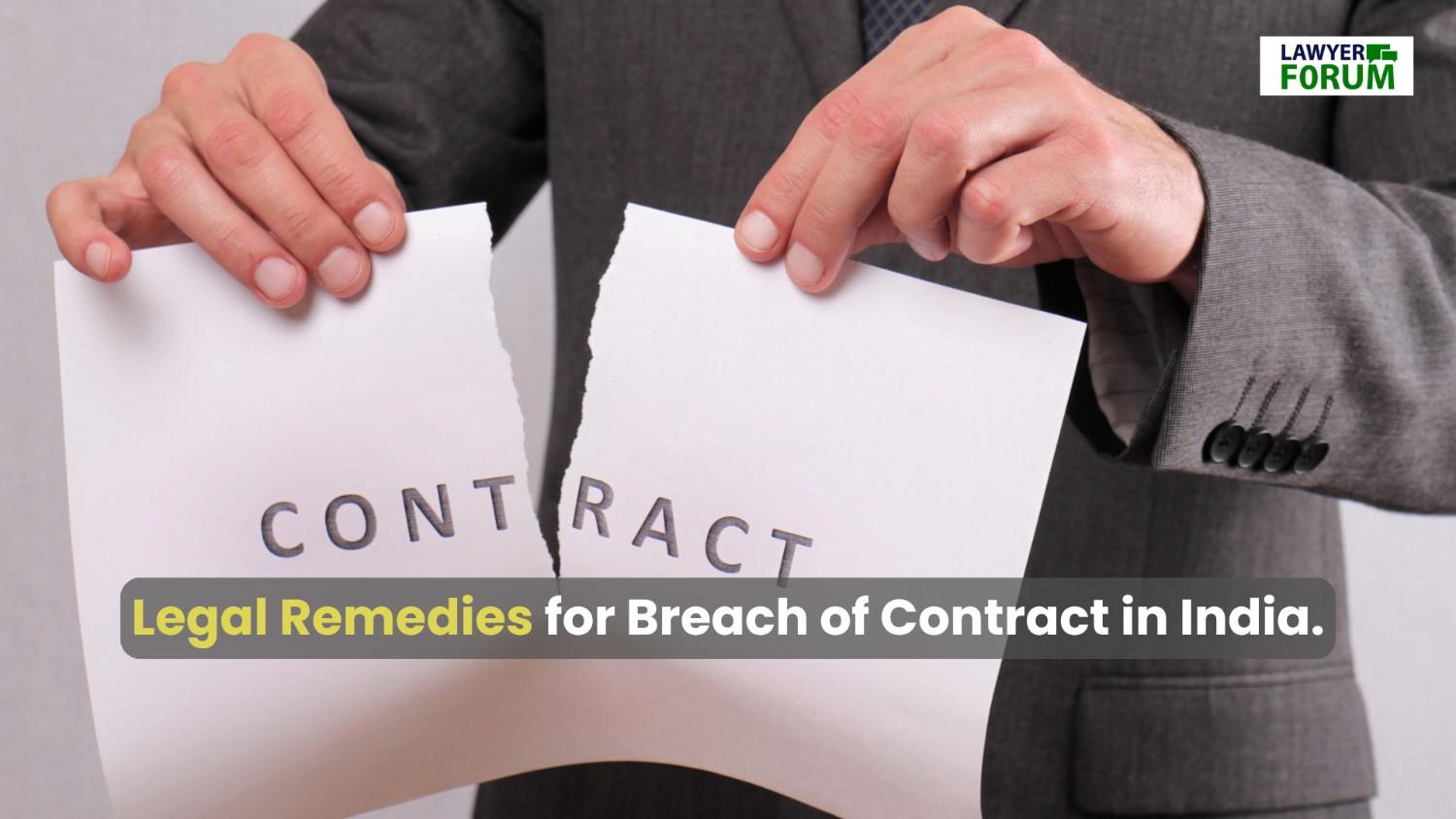· Legal Advice · 6 min read
How to Handle Defamation Cases in India – Legal Guidance & Steps to Take
Learn how to handle defamation cases in India. Discover the legal provisions, steps for filing a defamation lawsuit, and key considerations. Protect your reputation today.

Defamation is a serious offense that can damage a person’s reputation. In India, both individuals and entities have the legal right to protect themselves from defamatory statements. Whether through written words (libel) or spoken words (slander), defamation can lead to significant personal and professional consequences. If you’ve been defamed, it’s essential to understand the legal options available to you. This guide will provide you with the necessary steps and legal insights on how to handle defamation cases in India.
What is Defamation?
Defamation occurs when false statements are made about a person, either in writing (libel) or orally (slander), which cause harm to their reputation. To qualify as defamation, the statement must be false, damaging, and communicated to a third party.
There are two types of defamation:
Civil Defamation: The wronged party can seek monetary compensation for the harm done to their reputation.
Criminal Defamation: The person who committed defamation can face imprisonment or fines under Indian law.
Legal Framework for Defamation in India
Defamation is primarily governed under Sections 499 and 500 of the Indian Penal Code (IPC), 1860. According to these sections:
Section 499 defines defamation, listing several exceptions, such as truthful statements made in public interest.
Section 500 prescribes the punishment for defamation, which may include imprisonment of up to two years or a fine, or both.
In addition, the Civil Law, specifically the Law of Torts, provides remedies for defamation in civil courts, including claims for damages.
Elements of a Defamation Case
To file a defamation case, the following elements must be proven:
False Statement: The statement made about the complainant must be false.
Publication: The defamatory statement must be communicated to at least one other person besides the complainant.
Harm to Reputation: The statement must harm the reputation of the person or entity being defamed.
Intention or Negligence: The defendant must have either intended to defame or been negligent in making the statement.
Steps to Handle a Defamation Case in India
If you believe you have been defamed, you can follow these steps to seek legal action:
1. Consult a Lawyer
The first step is to consult with an experienced lawyer who specializes in defamation law. Legal counsel will help you assess whether the statement qualifies as defamation and advise on the best course of action.
2. Gather Evidence
Evidence is crucial in a defamation case. Collect any material that shows the defamatory statement, such as:
Printed materials (articles, newspapers)
Audio or video recordings
Witnesses who heard the defamatory statement
3. Send a Legal Notice
Before filing a lawsuit, your lawyer may advise sending a legal notice to the person or entity responsible for the defamation. The notice will demand a retraction of the statement and compensation for damages. If they refuse or fail to respond, you can proceed with filing a case.
4. File a Civil or Criminal Defamation Suit
Once all evidence has been gathered and the legal notice has been sent, the next step is to file a defamation suit in the appropriate court.
Civil Defamation: If seeking compensation for damages, file a civil suit.
Criminal Defamation: If seeking punishment for the wrongdoer, a criminal defamation case can be filed under Section 499 and 500 of the IPC.
5. Defending Against Defamation
If you are accused of defamation, it’s essential to know the defenses available under Section 499 of the IPC. Defenses may include:
Truth: If the statement made is true, it is not considered defamatory.
Fair Comment: Comments made in the public interest or in a reasonable manner (such as in reviews or critiques) may not be defamatory.
Privilege: Some statements made in certain forums (e.g., in court or Parliament) are protected under legal privilege.
6. Court Proceedings
Once a defamation case is filed, it will go through the legal process, which may include hearings, submission of evidence, and cross-examinations. The court will evaluate the merits of the case and pass a judgment. If successful, the aggrieved party may be awarded damages.
Defamation on Social Media: Legal Considerations
In today’s digital age, defamation often takes place online. False statements made on social media platforms can have far-reaching consequences. Defamation cases related to social media may involve additional legal considerations, including:
Cyber Defamation: Defamation through digital mediums like Facebook, Twitter, and WhatsApp.
Section 66A of the Information Technology Act, 2000: Deals with sending offensive messages, including defamatory content, through communication services or social media.
If you are defamed on social media, the legal steps mentioned earlier still apply, but online platforms might be involved in removing harmful content.
Enforcement of Defamation Laws in India
Once a judgment is passed in a defamation case, the court may direct the defendant to pay damages or issue a public apology. The enforcement of these orders can sometimes take time, but if the defendant fails to comply, they can face additional penalties, such as fines or imprisonment in criminal defamation cases.
Challenges in Defamation Cases
Defamation cases in India can be complex and time-consuming due to:
Burden of Proof: The plaintiff must prove that the defamatory statement was false and damaging.
Legal Costs: Lawsuits can be expensive, with legal fees and court costs involved.
Public Perception: The media may continue to perpetuate false information, affecting the case and public opinion.
Conclusion
Defamation can cause significant harm to one’s reputation, but the law provides effective remedies. Whether you are the victim of defamation or facing a defamation lawsuit, understanding the legal framework and consulting a qualified lawyer is crucial. By following the appropriate legal steps, you can protect your reputation and seek justice.
For assistance with defamation cases or any other legal concerns, consider visiting Lawyer Forum, where legal professionals can provide you with expert guidance and representation.
FAQs
What is the difference between civil and criminal defamation in India? Civil defamation allows the aggrieved party to seek damages, while criminal defamation involves punishment for the wrongdoer, such as imprisonment or fines.
Can a defamation case be filed for comments on social media? Yes, defamation through social media platforms is legally actionable, and you can file a defamation case for harmful online statements.
How long do defamation cases take in India? Defamation cases can take several months or even years to resolve due to court procedures and backlog.
Can the truth be a defense in a defamation case? Yes, truth is a valid defense in both civil and criminal defamation cases.
What can I do if I am falsely accused of defamation? You can defend yourself by proving that the statements you made were true, or that they were fair comments made in the public interest.


.DzVGGFQL.jpeg)
 (1).J7-xArka.jpg)